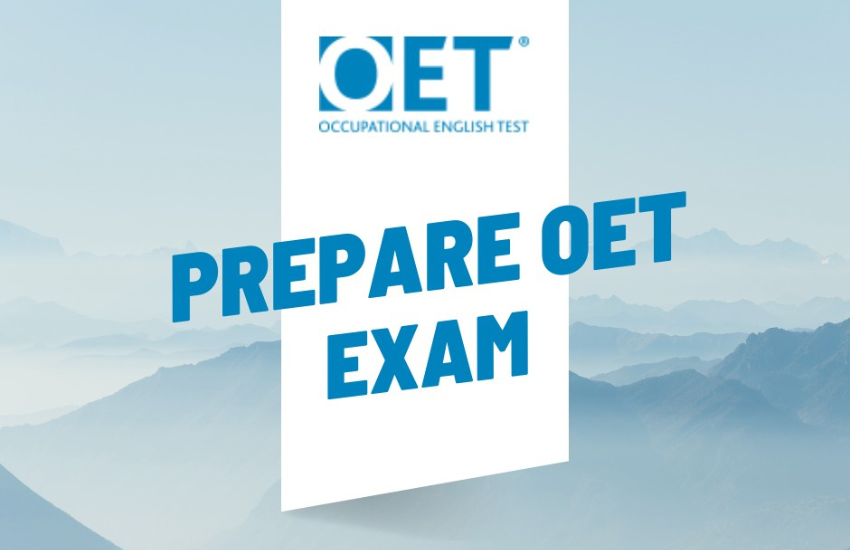Top 10 OET Tips to Help You Pass with Confidence
Introduction
The Occupational English Test (OET) is designed specifically for healthcare professionals aiming to work in English-speaking countries. Whether you’re a doctor, nurse, or any other healthcare worker, passing the OET is an essential step to advancing your career. But, like any exam, success depends on how well you prepare.
In this article, we’ll cover Top 10 OET Tips to Help You Pass with Confidence. These tips are meant to guide you through a strategic, focused approach, ensuring you’re ready to conquer the test and gain the confidence you need.
Why OET is Crucial for Healthcare Professionals
The OET is the go-to exam for many healthcare professionals seeking to work in English-speaking countries. Unlike other English proficiency tests, OET focuses on medical terminology and real-life scenarios, which means it’s directly relevant to your career.
Many countries, including Australia, the UK, and New Zealand, recognize the OET as proof of English proficiency for healthcare professionals. This makes passing the OET a crucial step in starting your healthcare career abroad or advancing your current role.
How These 10 Tips Will Help You Succeed
Whether you’re new to the OET or preparing for a retake, these tips will give you a structured path to success. From understanding the exam format to managing stress, we’ll guide you on how to approach your preparation effectively, enabling you to walk into the test center with confidence.
Tip 1: Understand the OET Structure and Format
Before diving into your preparation, make sure you understand the OET exam structure. Knowing the layout of the test helps reduce anxiety and ensures you can manage your time wisely during the exam.
The OET consists of four sub-tests:
-
Listening
-
Reading
-
Writing
-
Speaking
Each sub-test has specific instructions and time limits. Familiarize yourself with the format, types of questions, and the time allocated to each section. Knowing what to expect in each part of the test will increase your confidence and help you manage your time during the exam effectively.
Tip 2: Set Realistic Study Goals
Setting achievable goals is crucial when preparing for any exam. With the OET, it’s essential to break down your preparation into smaller, manageable objectives. Instead of just aiming to “pass the OET,” set specific goals such as improving listening comprehension, mastering vocabulary, or writing clear, concise referral letters.
By setting goals like these, you can track your progress and stay motivated. This helps prevent feelings of overwhelm and keeps your preparation focused.
Tip 3: Create a Detailed Study Plan
A well-organized study plan is essential to OET preparation. Design your study schedule to ensure you dedicate enough time to each of the four sub-tests. Include time for review, mock tests, and relaxation to avoid burnout.
Make sure your plan is realistic and suits your lifestyle. Whether you prefer studying in the morning or at night, align your study sessions with your energy levels for maximum productivity.
Tip 4: Practice with Official OET Materials
Using official OET preparation materials is one of the best ways to ensure you’re familiar with the test’s structure and question types. These materials reflect the actual exam format and help you practice with authentic content. Make sure you invest in the official OET practice books or take part in online practice courses.
Practicing with official resources will help you build confidence and reduce the risk of surprises on exam day.
Tip 5: Take Mock Tests Regularly
Taking mock tests under timed conditions is one of the best ways to evaluate your progress. It allows you to experience the test’s pressure, improve your time management, and identify areas where you need further practice.
Review your results after each mock test and analyze the areas where you performed poorly. This targeted review will help you improve your weak points and boost your overall score.
Tip 6: Focus on Each Sub-Test Individually
Each sub-test of the OET is designed to assess specific language skills, so it’s important to focus on each one individually.
Listening Test Tips
-
Practice listening to healthcare-related podcasts or recordings.
-
Focus on understanding both the general meaning and specific details.
-
Note keywords like medical terms or instructions to help you answer questions quickly.
Reading Test Tips
-
Skim through texts before reading carefully.
-
Focus on understanding the structure of the text and identifying key details.
-
Use highlighting or note-taking techniques for faster comprehension.
Writing Test Tips
-
Practice writing referral letters and reports using sample case notes.
-
Focus on clarity, accuracy, and using professional medical language.
-
Stick to the 45-minute time limit and practice writing within that time frame.
Speaking Test Tips
-
Practice speaking in role-plays with a peer or tutor.
-
Use clear, simple language while maintaining a professional tone.
-
Focus on fluency and clarity rather than memorizing answers.
Tip 7: Build Your Healthcare Vocabulary
The OET evaluates your knowledge of healthcare-specific language, so improving your healthcare vocabulary is key. Dedicate time to learning medical terminology, including terms for symptoms, diagnoses, treatments, and procedures.
Creating flashcards or using apps designed for medical vocabulary can help reinforce these terms and ensure you’re ready for the exam.
Tip 8: Don’t Skip Revision of Grammar and Sentence Structure
While the OET focuses on healthcare communication, correct grammar and sentence structure are still crucial. Poor grammar can lead to confusion and a lower score, especially in the writing and speaking tests.
Make sure to review grammar rules and practice forming clear, concise sentences. This will ensure you communicate your thoughts accurately and professionally.
Tip 9: Stay Calm and Manage Stress Effectively
Test anxiety is a common issue for many students, but it can be managed with the right strategies. Before the exam, practice relaxation techniques like deep breathing or meditation to calm your nerves. Make sure to get plenty of rest before the test and maintain a healthy diet.
On exam day, focus on staying calm and collected. Remember that preparation is key, and you are ready.
Tip 10: Stay Consistent and Track Your Progress
Consistency is crucial when preparing for the OET. Rather than cramming all your study into one or two days, aim for daily study sessions. Even small amounts of practice each day add up over time.
Track your progress to stay motivated. Mark your achievements, review what’s working, and adapt your study plan as needed.
Frequently Asked Questions (FAQs)
How Long Should I Study for the OET?
It depends on your current level of English proficiency. Typically, 2-3 months of focused preparation is recommended for intermediate learners.
Can I Retake Just One Part of the OET?
Yes, the OET allows you to retake individual sub-tests without needing to retake the entire exam.
How Do I Improve My Speaking Skills for OET?
Practice speaking with a language partner or tutor. Focus on clear communication, including using appropriate medical terms and maintaining a calm, professional tone.
Conclusion: Confidence is Key to OET Success
By following these 10 practical tips, you can approach the OET with confidence and be well-prepared for exam day. Remember that success in the OET comes down to consistent preparation, practicing with the right materials, and staying calm. Good luck on your journey to OET success!




